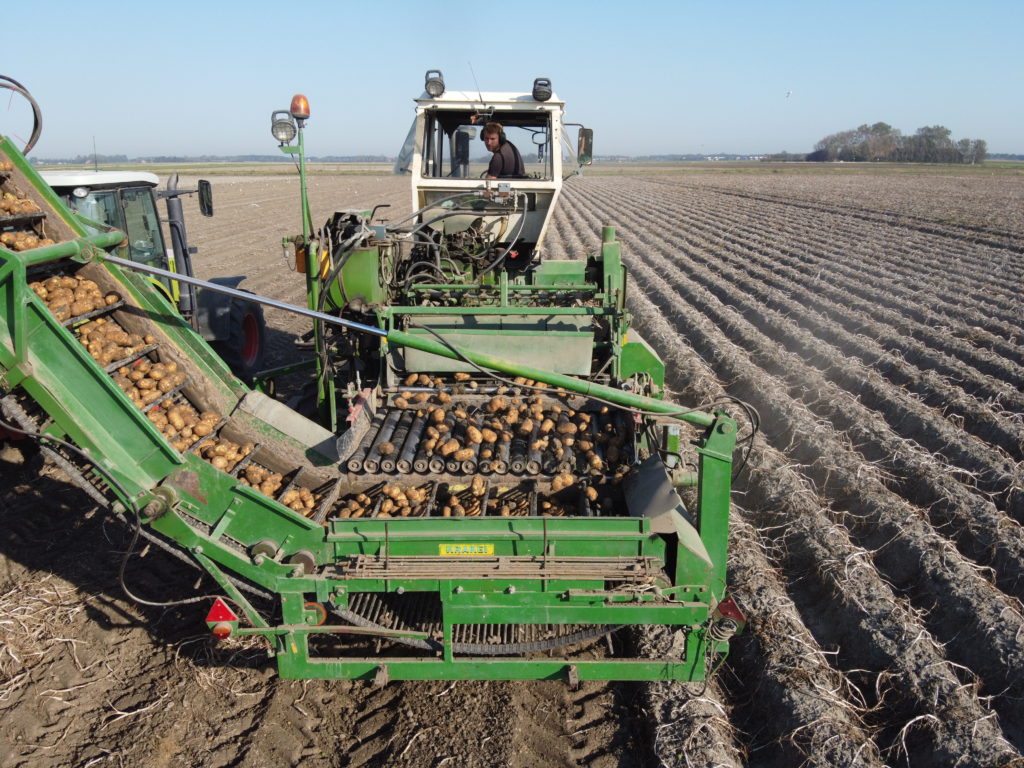Plants for Plants® is a new generation of organic, plant-derived biostimulants developed through a collaboration lead by Van Iperen International and Landlab.
Awarded with a grant by LIFE, the EU’s funding instrument for the environment and climate action, the Plants for Plants® project has just completed a series of demo trials, and is looking to perform further trials in 2021 throughout the world on two of the first prototype products (LL002 and LL004), intending to bring them to market in 2022. Plants for Plants® is the result of 10 years of research process held by Adriano Altissimo, Landlab’s Scientific Manager, and Van Iperen International.
In 2020, we executed 30 trials in 7 European countries on a selection of cash crops, arable, and fruit trees. In total, 16 different crops were treated, including corn, potato, wheat, canola, sunflower, sugar beet, onion, barley, melon, tomato, wine grape, strawberry, lettuce, pear, apple, and apricot. For next year, we expect to extend the demonstration trials around the world.
Trials results of Plants for Plants® Campaign 2020
Despite the challenges met in 2020, we managed to continue the field trials program and release the initial results of the Plants for Plants® demo trials. The test area of the European pilot has been 40 hectares in 2020, which were treated with the new biostimulants.
“Together with partners all over Europe, we set an extensive trials program with the idea to move the P4P solutions closer to the grower. In this way, they can see the results first-hand for themselves,” says Marc van Oers, Director of Innovations with Van Iperen International.
“After assessing circa 24 trials, we have 18 trials with clear positive effects, 4 trials with neutral effects, and 2 trials with negative or no effects. These results set a very positive trend over a large variety of crops in different climate areas,” confirms van Oers. As example of this performance, a trial conducted in France has shown an increase of more than 40% average yield per tree on apricots. In the same line, a positive impact has been proved in a trial on industrial tomatoes with a 16% increase in total yield.
Other trials done with different set-ups, where the crops have grown with a reduced amount of water and or Phosphate in comparison to farmers’ practice, have also to the date shown positive outcomes consistently. These trials are not to prove efficacy but to demonstrate the potential to farmers.
Leading the way to 2021 with Plants for Plants®
In 2021, Van Iperen International and the Italian R&D company LandLab will continue to work with many partners to set more demonstration trials. “Unfortunately, due to COVID 19, we had to delay some trials. But we hope to carry them out next year”, affirms Laurent Aubertin, Directeur of Product Development and Agronomy. “Only in Europe, we plan to conduct 120 trials on 25 different crops in 18 countries. This will represent a surface of 650 hectares, 16 times more than in 2020.”
But the ambition of the Plants for Plants® trial program for 2021 goes further. Alongside the European demonstration trials, we aim to get to other key-areas of the Middle East such as Turkey, Armenia, Egypt, Lebanon, Qatar, Iran, or Iran. For it, 30 trials are planned throughout the whole year on more than 10 varieties of crops. “We set ourselves new and stretching targets that include other countries out of Europe and helping these farmers too,” confirms Aubertin.
At Van Iperen International, we believe science and technology hold the potential to help meet the world’s long-term food needs, and growers’ demands more sustainably and responsibly. As an innovative biostimulant, Plants for Plants® takes a big part in this by answering a global demand on Nutrient Use Efficiency (NUE), Water Use Efficiency (WUE), and Crop Fortification Efficiency (CFE), as well as reducing agricultural inputs.
In this way, Plants for Plants® aligns with Van Iperen International’s ambition for the upcoming years: to become a game-changer in the agricultural sector by leading the way towards more sustainable agriculture with innovative solutions.

